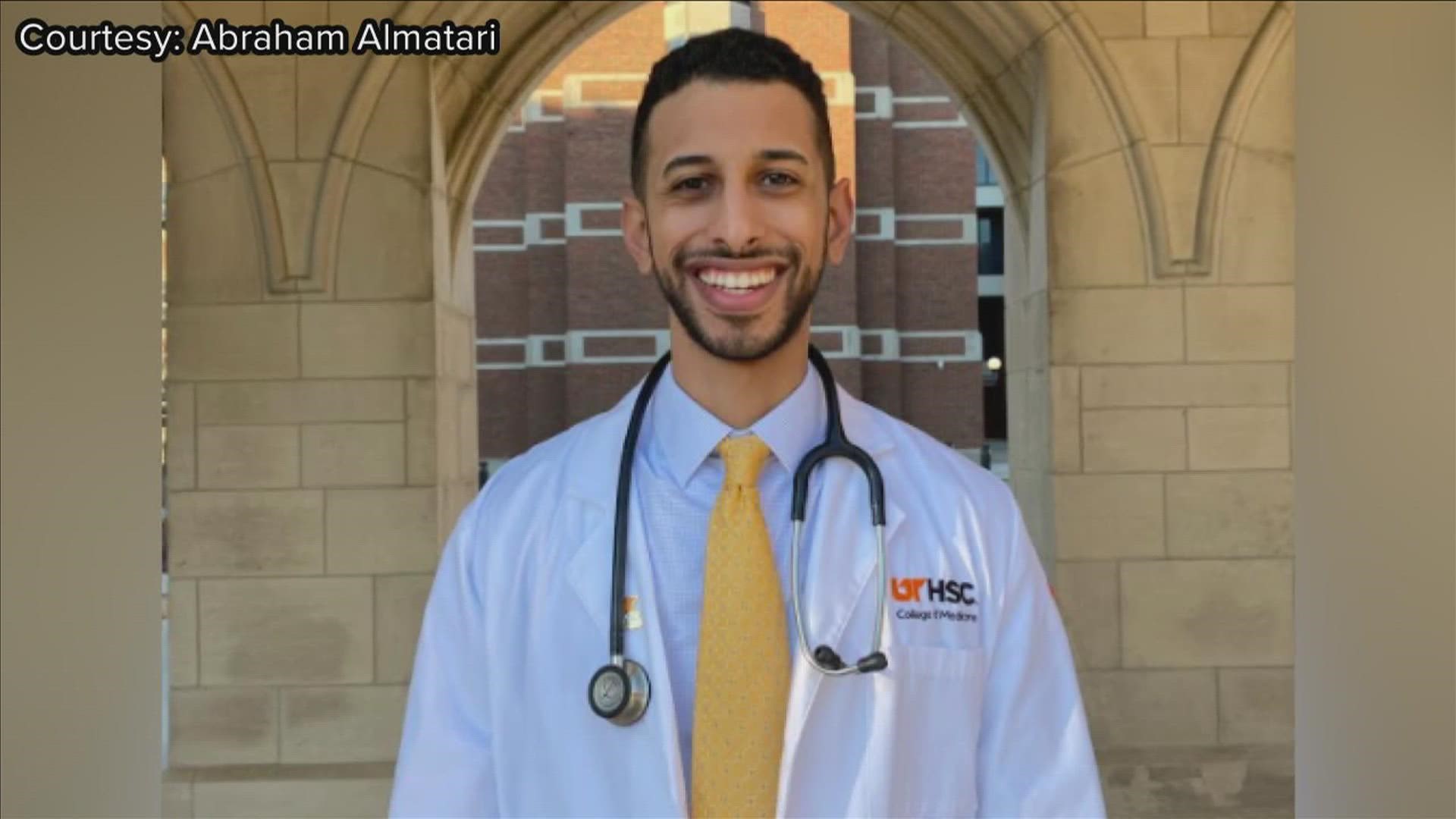MEMPHIS, Tenn. — Medical school trains those who will go on to save lives, but what happens when the doctor-in-training becomes the patient?
Fortune is often defined by wealth.
To Abraham Almatari, it is luck and chance.
“I joined medical school fall of 2020. I knew I wanted to be a doctor. But I was a little undecided,” said Almatari, UTHSC medical student.
Little did Almatari know, his first year of medical school at the University of Tennessee Health Science Center would be a deciding factor for his course in life.
“As we go through our anatomy curriculum, we learn how to do ultrasounds,” said Almatari.
Due to COVID, students could not practice on patients. Instead, they practiced on each other.
“In ultrasound lab, we were learning how to do an abdominal ultrasound exam. And one day we were supposed to find our kidneys, our spleen, our gallbladder, and liver,” said Almatari.
He volunteered to be the pretend patient.
“My group and I were having a little bit of a hard time finding the left kidney and spleen area. So, one of my group members waved out along with three other groups. It's five minutes left in the class, and the professor just happened to come over to our group last, and essentially looked around for a while. He was talking with us and identifying various anatomy, and he just got very serious at one point,” said Almatari.
His pretending revealed a serious truth.
“Then I asked him. I said, ‘Is that my kidney? Is it not supposed to look like that? He just told me, 'you know, we'll you know, I will talk with you for a few minutes after, after we wrap up looking at everything',” said Almatari. “That was a quite a scary moment. I didn't really know what to make of it. I had lots of thoughts running through my head. I was panicking a little bit. But, you know, I tried to try to stay calm.”
Almatari’s kidney had a large mass which appeared as a lot of bubbles on the ultrasound screen.
Four weeks later, he had surgery to remove his kidney.
That is when doctors were able to run tests on the organ and diagnose what they saw.
“I received a secondary diagnosis, which was clear cell papillary renal cell carcinoma,” said Almatari.
Papillary renal cell carcinoma is a type of kidney cancer.
Luckily, Almatari caught it at stage 1. He did not need radiation or chemotherapy.
“I just feel very fortunate and blessed to have had, you know, to have been at the right place at the right time, and, you know, have had so much support,” said Almatari.
He plans to give that same support to others.
“I did not really know much about the field of Urology until I had this whole experience. And afterwards, I began to explore. I began to shadow. I discovered I really liked the field. And I think this is something I would like to pursue as a career,” said Almatari.
His hope, now, is to spread his great fortune in the form of luck, chance, and life to someone else.

